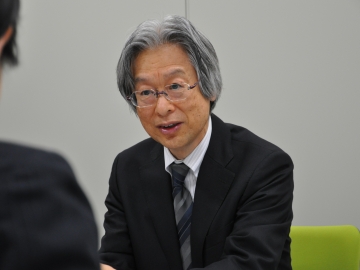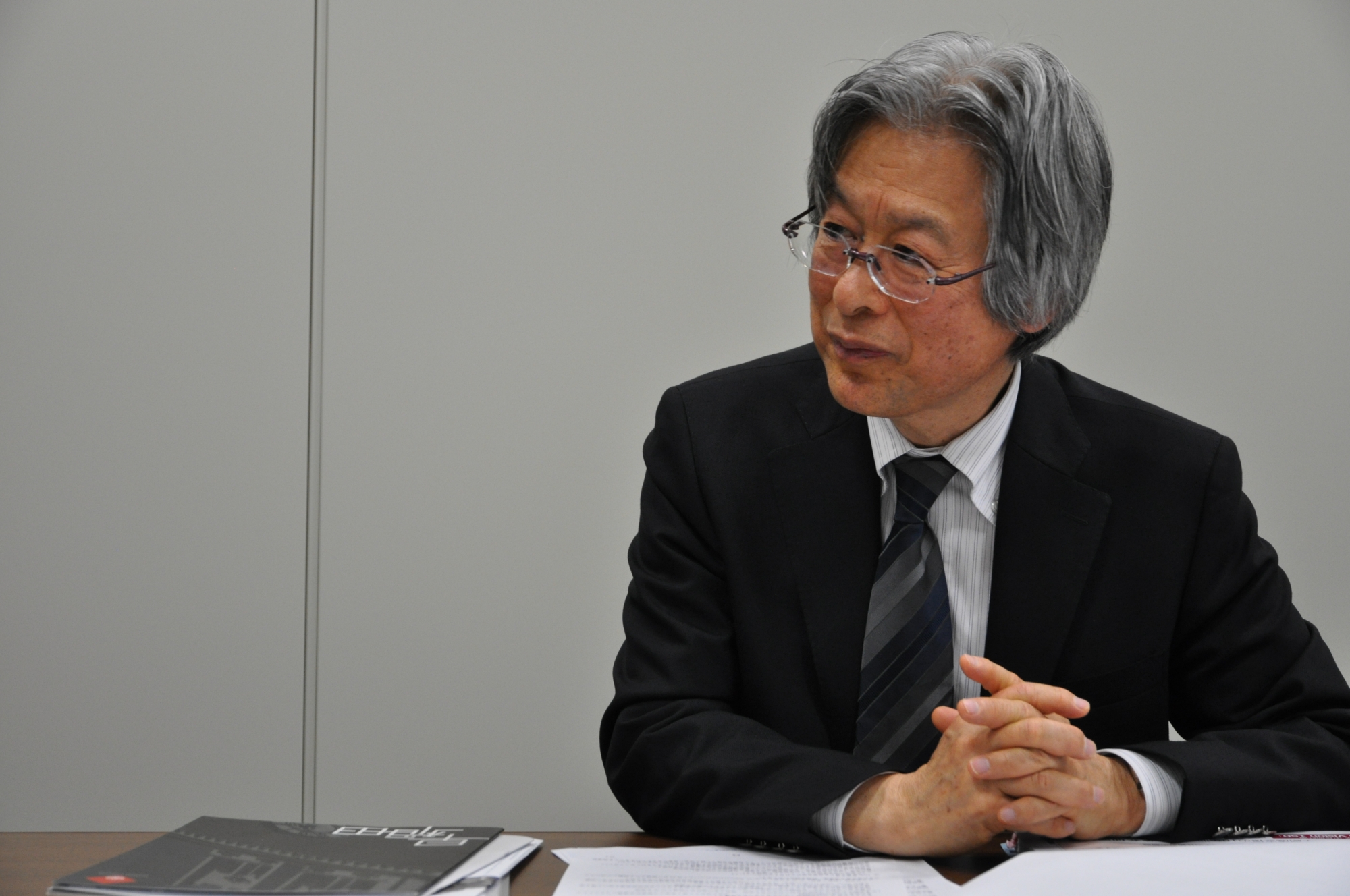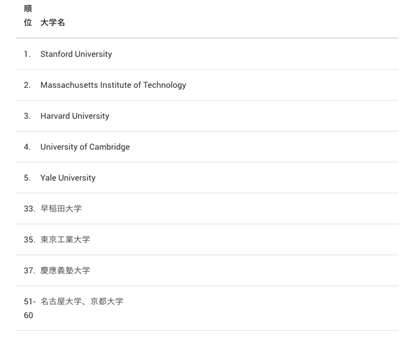Expanding the network of learning: the status of Waseda’s global revolution (Part 2 of 2)
Tue, Jan 10, 2017-
Tags
Selected by the Ministry of Education, Culture, Sports, Science and Technology (MEXT) for the Top Global University (TGU) Project, Waseda Goes Global is a ten-year plan initiated in 2015 to connect the University even more closely with the world, revolutionize its research and education programs, graduate 100,000 students trained for global leadership, and secure a top-100 global ranking in at least 18 of its 25 research areas. Professor Sato, Senior Executive Vice President for Academic Affairs & Provost, spoke on the progress of Waseda’s revolution.
Part 1 of the interview is available here.
University reform making steady progress

Professor Seishi Sato, Faculty of Political Science and Economics
Senior Executive Vice President for Academic Affairs & Provost, Waseda University
Aside from building an international network of learning, what kind of actions has Waseda University taken to promote globalization?
Waseda Goes Global focuses on strengthening governance. As a part of these efforts, the University Strategy Council, led by President Kaoru Kamata, was established in 2015. It includes external committee members to give advice on the University’s policies from an international standpoint.
Glen S. Fukushima, a Senior Fellow at the Center for American Progress and an external member of the University Strategy Council, said that approaching issues from a broader and more interdisciplinary perspective will meet the complex needs of contemporary society.
Furthermore, the University does not stand alone. It must maintain its relationship with neighboring communities, businesses, alumni and society at large. This will lead to addressing and resolving societal issues facing Japan and the world today through innovative approaches. Under such aspiration, the University created the External Affairs & Fundraising Section in the Office of the President in October, which can also be considered as an initiative for promoting globalization.
Waseda’s reputation in the world

What kind of achievements has the University made lately?
The University expects to meet all Waseda Vision 150 goals by 2032, yet already in 2015, there were over 5,000 international students at Waseda, half the 2032 goal and the largest number in Japan. Moreover, the number of Waseda students studying abroad has been steadily increasing.
I would also like to mention our latest achievements in education and research.
The University targets 18 fields, related to the six model units of Waseda Goes Global, to place within the top 100 in world rankings. According to the 2016 QS World University Rankings published by QS Quacquarelli Symonds Ltd. of the UK, the subjects “Modern Languages,” “Politics & International Studies,” and “Sociology” already ranked within the top 100.
In addition to intellectual aptitude, Waseda students are equipped with great potential and interpersonal skills. In the QS Graduate Employability Rankings 2017, Waseda University ranked No.1 for graduate employability in the nation for two years in a row and No.26 worldwide. The ranking is calculated from measures of reputation among employers, alumni outcomes, partnerships with employers, employers’ presence on campus and graduate employment rates. The result shows exceptional performance of our graduates as global leaders, part of the Waseda Vision 150 goals as well.
Globalization in all classrooms
What future aspirations does the University have in terms of globalization?
Though the University aims to excel in all areas of study, the six model units selected have priority funding in research due to their competitiveness by international standards. In April 2017, Waseda will establish the Global Governance Center, which integrates the social sciences together. Furthermore, a new model unit will be added to Waseda Goes Global.
As explained above, we look forward to gradually expanding the model units to different areas of study and to becoming a central hub for a highly advanced, global academic network covering all fields.
Lastly, do you have any advice for Waseda University students?
Waseda University is fast-tracking its internationalization efforts. Perhaps many students feel the diversity on campus as they cross paths and become friends with people from all different nationalities and ethnicities.
However, we know that globalization is not uniformly pervasive in all corners of the University, especially the classrooms. For example, the curriculum is now divided between Japanese and English-taught courses, but we intend to offer hybrid courses in the future, where Japanese and English are used equally, to promote mixing and interaction.
In the midst of these reforms, I would like for every Waseda student to contemplate what globalization means for the University. It does not matter where you are from. I hope that the community, education and research here at Waseda will foster students who think deeply about society and the world at large.
Universities in a Global Society: Framework of Education for Prospective Global Leaders
This symposium will focus on international collaboration in education and research, and introduce global initiatives at Waseda University. Part 1 will be an overview of Waseda University’s global engagement strategies. This part will also include invited talks on global engagement strategies by representatives from three universities overseas, which have structured new educational frameworks for the Top Global University project (TGU). Part 2 will look at specific cases in the joint appointment system (JA) and the joint supervision program, which were established with the University’s aim to implement a joint degree program (JD) in the future. Moreover, doctoral students and respective faculty members from partner institutions will share their experiences on these frameworks.
- Date & Time: January 23, 2017 (Mon), 14:30–17:30
- Venue: Okuma Small Auditorium
- Language: English and Japanese (simultaneous interpretation will be provided)
- Free admission
- Open to students, graduate students, faculty & staff, and the general public
- Contact information: [email protected]
- To participate, fill out the registration form
Program outline
Part 1: Strategies for Global Engagement
- 14:30 Opening Address by Professor Shuji Hashimoto, Senior Executive Vice President for Academic Affairs & Provost, Waseda University
- 14:35 Welcome Speech by Hideki Iwabuchi, Guest of Honor from the Ministry of Education, Culture, Sports, Science and Technology
- 14:45 Plenary Talk “Waseda University’s Global Engagement Strategies” by Professor Norimasa Morita, Vice President for International Affairs, Waseda University
- 14:55 Invited Talk 1 “Monash University, International Networks and Overseas Campuses” by Professor Zlatko Skrbis, Vice-Provost, Monash University
- 15:10 Invited Talk 2 “Faculty and Student Mobility of Korea University” by Professor Dong Hoon Choi, Vice President, Korea University
- 15:25 Invited Talk 3 “Co-supervision Program with Overseas Universities” by Professor Andreas Zimmer, Vice Rector, University of Bonn
- 15:40 Break
Part 2: International Collaboration for Future Global Leaders
- 15:55 Plenary Talk “Expectations of Industrial Sectors for Future Global Leaders” by Dr. Yoshihiko Nagasato, Chairman, Sub-committee on Industry-Academia-Government Cooperation, Committee on New Industry and Technology, Japan Business Federation
- 16:10 Waseda University’s Efforts 1 “Efforts and Challenges in Borderless Education and Research through Joint Appointments and Joint Supervision” by Professor Hiroyuki Nishide, Leader of the Energy and Nanomaterials Unit, Waseda University
- 16:25 Waseda University’s Efforts 2 “Joint Appointment Faculty Activities at Waseda University” by Associate Professor Francesco Greco (JA), Istituto Italiano di Tecnologia (IIT) and Professor Vladimir Georgiev (JA), University of Pisa
- 16:45 Waseda University’s Efforts 2 “International Collaboration Strategies in the Empirical Analyses of Political Economy Unit” by Professor Aiji Tanaka, Leader of the Empirical Analyses of Political Economy Unit, Waseda University
- 17:00 Doctoral Student Experiences “Joint Research Guidance at IIT, University of Chicago, University of Bonn and Korea University” by Mr. Kento Yamagishi, Mr. Ryo Kato, Mr. Satoru Wakabayashi, and Mr. Shunsuke Kawano from Graduate School of Advanced Science and Engineering
- 17:20 Closing Address by Professor Seishi Sato, Vice President for Academic Affairs, Waseda University
Organized and Cosponsored by
Organized by Waseda University TGU Steering Conference
Cosponsored by Waseda University Leading Graduate Program in Science and Engineering and Three Dimensional Development of Lab-Exchange type Biomedical Science Research Consortium















